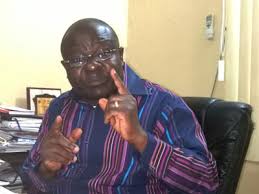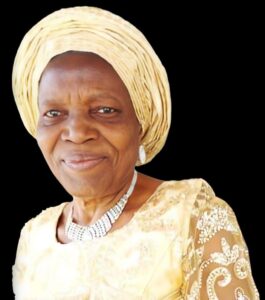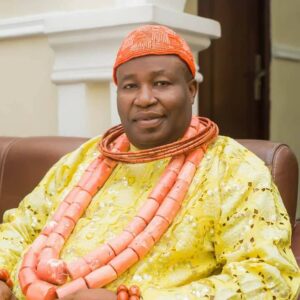CONFAB RECOMMENDATION FOR PART-TIME LEGISLATURE AND MATTERS ARISING
By Zik Gbemre
When it was recently reported that the National Conference, in order to ensure a drastic reduction in the cost of governance, has recommended that Nigerian Legislators at both national and state levels should function on a part-time basis, we were glad that such move, which is in the right direction, was being made by delegates of the National Conference. We only hope that the recommendations and outcome of the National Conference will not end up only on paper and not implemented like others before it. As we have advised before now, what the National Assembly can do for Nigerians is to enact a law suggesting that whatever will be the outcomes/resolutions/decisions of the National Conference, such should be binding on every ‘dick and harry’ in the polity. They should also make the necessary amendments in the nation’s Constitution to give room for a referendum. In other words, Nigerians must have the final say on the outcome of the National Conference, and they can only do so through a referendum.
Having said that, the recommendation of the National Conference on making our lawmakers to be on part-time basis, is a step in the right direction. The Committee on Public Service Chaired by former Head of Service of the Federation, EbeleOkeke, had recommended a review of salaries of lawmakers toward ensuring that their allowances “should be comparable with what obtains in other arms of the public service.” A Federal Government delegate at the Conference, Chief Mike Ozekhome, agreed with the recommendation of the committee on part-time legislature, saying: “I want to agree with the committee that we do not need 360 members of the House of Representatives and 109 members of the Senate. In America, they have 435 members in the House of Representatives and 100 Senators because in population they are 316 million people. Texas and California alone are bigger than the whole of Nigeria. So we do not necessarily have to imitate them. We need to have a leaner government. It is either we have a unicameral legislature or if it must be bicameral, then they have to sit on a part-time basis and be paid honorarium.”
When the deputy Chairman who presided over the meeting called on delegates to vote on this, there was a unanimous agreement that the members of the legislative arm of government should be given any severance allowances, pensions or compensation of any kind at the expiration of their tenure. The agitation for political appointees to utilize the staff of their ministries where it becomes necessary as contained in Circular Ref.No.B63833/73 of January 3, 2000, was seen as appropriate. It said: “While it is appropriate that the nature of Presidential system of Government necessitates the appointment of ‘Special Advisers’ and ‘Special Assistants’ to the President, the Vice President, the Governor and the Deputy Governor, its extension to Ministers, Commissioners and Local Government Chairmen should be discontinued as a cost-saving measure.”
Without a doubt, if it were possible for us a people and a nation to sit down and calculate every naira and kobo that have been ‘recklessly’ spent by the Nigerian government at the various levels in their governance activities and supposed recurrent expenditure from 1960 to date, the results that will be revealed will not only be shocking, but it will also not commensurate with the deplorable status of the country which they are expected to effectively govern in the first place. In other words, rather than the high cost of governance, which is daily becoming a national concern, to reflect as improved living conditions of the Nigerian populace, it is only reflected on those ‘privileged’ to be in and around the circles of government, thereby leaving the majority of the population in perpetual want and need.
The level of public funds wastefulness and corruption at high spheres of government circles is daily becoming a clear channel through which the nation is ripped off by government. Our Presidential System of government, which is in no way similar to what we have in the USA (even if they keep trying to make us see otherwise), has created this anomally of wastefulness to satisfy self-centered interests and not the interest of the nation. This unfortunate situation, has kept Nigeria as a developing nation, in a rather retrogressive path of development instead of moving ahead like its counterparts across Africa and the globe.
Despite Federal Government’s usual promises and media talks over the years to address this loophole that is draining our economy, nothing concrete has been witnessed by Nigerians in this direction. Some few years ago, the Presidential Advisory Council (PAC), expressed concern over the increasing high cost of governance in Nigeria and advised President Goodluck Jonathan to work towards reducing the number of Ministries, Departments and Agencies (MDAs) and the overheads incurred in running them. PAC, in its recommendation, wanted the government to begin the process of merging and also the reduction of Federal Ministries and other government agencies to cut down on unnecessary government spending. Although the then former Finance Minister, Mr. OlusegunAganga, had in September 2010, set up a committee to review the expenditure cut, nothing much has changed; the fact still remains that the structure of Nigeria’s democratic government and its governance activities, have been draining the nation’s economy to an unstoppable bleeding point of extinction and decay.
Nigeria today has 29 Ministries including the National Planning Commission and National Sports Commission, which function as Ministries and for which Ministers are appointed. There are also 14 Federal Agencies as provided for in the 1999 constitution excluding adhoc bodies and panels that are raised from time to time. It might also interest us to know that, despite these numbers of government functionaries, there are appendages that are attached to them as Special Advisers, Special Assistants, Personnel aides, Chief of Staff Protocol and other fancy names that are too numerous to mention. The situation is even worse at the State and Local Government levels. That is why whenever a government personnel is on his/her so called official duties, the fleet of cars that usually accompanies the official is enough evidence that explains how the country’s treasury is daily milked to maintain such highly-profiled entourage; entourages that have even made our roads no longer safe or a public utility for everybody, particularly anytime they pass. And this applies to all government functionaries, starting from the Presidency and its Cabinet, members of the National Assembly and their counterparts at the State levels; State Governors and their Commissioners including Council Chairmen and their Councilors.
The truth is that, a lot of these Ministries in the country today are functioning on the platform of ‘duplication of functions/duties.’ Some of the MDAs are nothing but unnecessary sprouts that should be uprooted or merged to function under one or two Ministries. Perhaps, it is expedient for us as a nation to take a critical look at developed societies and see how they operate, and possibly emulate the laudable practices that would suit our kind of democracy. The size of the Nigerian government at all levels drastically needs to be reduced if we are serious in tackling the challenges that are adversely impacting the economy. We cannot develop as a nation with the way we are going. No country has achieved considerable development when such ‘public funds wastage’ is encouraged.
Apart from the fact that it is necessary for the Nigerian government to cut down its size, it is also expedient for the government to drastically reduce its current expenditure on emoluments and salaries of public office holders. We can imagine this situation where a small number of our political leaders as lawmakers, are swallowing the government’s recurrent expenditure to the detriment of capital expenditure that would provide developmental strides for the over 150 million people of this country. Comparatively, when we consider the salary of a senate member of the National Assembly, compared to that of their counterparts in other parts of the world, we would be amazed at the disparity.
For instance, according to a report: a UK MP’s salary is about €657.38 (N6 million per annum), a US senator – $17,400 (N26 million per annum), a Canadian Senator – $13,230 (N18 million per annum), then a Nigerian Senator – N180 million per annum ($ 1.3 million). As a matter of fact, the situation is the same at the upper Executive level. A British Prime Minister’s salary is said to be around €14,2500, that of the US President is $400,000; French President earns €22,800; Irish Prime Minister – $342,400; Australian Prime Minister – $309,800; even the South African President earns – $305,800, whereas, our senators have crossed the $1 million mark as their yearly take home pay. This is one area that obviously needs to be readdressed by the RMAFC. It is this sort of outrageous anomaly of the governments’ recurrent expenditure that has kept our nation in its current deplorable status.
Nigerians finds it appalling that the Nigerian National Assembly members are still the highest paid lawmakers in the world. When the Minimum Wage in the country is merely N18,000.
The argument about the jumbo pay of Nigerian lawmakers at both the state and national levels has a way of degenerating into a farce, with the beneficiaries, the legislators, often adding insult to injury: Not only do they often fail to disclose the exact figure, they even justify their sumptuous pay with the so-called ‘enormous national duty’, the non-performance of which is their signature. That conversation was recently elevated to an absurd level by the Speaker of the Federal House of Representatives, AminuWaziriTambuwal at the Fifth Christopher Kolade Symposium Series organized by the Nigeria Leadership Initiative (NLI). The Speaker, who was represented by the Minority Leader, Femi Gbajabiamila, said he and his colleagues were being wrongly accused of earning outrageous salaries. Tambuwal went further to differentiate between their basic salaries and allowances and stressed that both were justified on the ground of their enormous responsibility.
This barefaced defence of legislators’ jumbo pay by a high-ranking member of the National Assembly is, to say the least, the height of insensitivity. It does not only run against the grain of public opinion, it demonstrates in absolute terms “the disconnect between leaders and the led”. The Speaker and his colleagues must reside in another planet not to appreciate the well-known fact that Nigerian legislators are the highest paid in the world. Unjustifiably so. One wonders what duty or responsibility the honourable members are discharging to warrant an annual appropriation of about N150 billion! The reality of their performance is even a greater embarrassment: empty seats during sessions, merry-go-round on non-conclusive inquiries which are often turned into rent-seeking exercises. It is even more scandalous that they are paid sumptuously for the sinecure they call responsibility. They are the recipient of unimaginable allowances outside basic salaries, including foreign and local travel, recess, utilities, furniture, constituency allowance, and vehicle loan as well as vehicle maintenance, and even a ‘hardship allowance’ among others. Also, it is the practice that under the pretext of statutory transfer the National Assembly are allocated huge sums which details are not made public.
They enjoy these privileges for doing nothing and against the backdrop of a minimum wage of N18000 for an average worker, unpaid public servants, millions of jobless graduates who roam the streets and increasing social crises; like the recent deaths of about 16 applicants for that went for the Nigerian Immigration Service recruitment exercise. The unimpressive recurrent expenditure pegged at 81.6 per cent in the 2012 budget is overweighed by the salacious outlay on the legislators. The end result is that nothing is left for capital expenditure. It should be said with all emphasis that such thoughtlessness as Tambuwal’s unguarded submission is the very basis for the call for reform of the national legislature. There is indeed a compelling need to rethink the form and content of the legislature. And it is to be noted that Nigeria national income cannot sustain the gluttony of its lawmakers. A step towards its reform must be backed by the need to reduce legislative reward to merely sitting allowance without a basic salary component and it should be structured to be part-time. As it has been advocated times without number, the country does not need a bicameral legislature. It is a waste of public funds and it should be reorganized or streamlined into just one chamber. The Senegalese example is there for all to emulate. That country went back to a unicameral legislature to save resources for other compelling development goals. Nigeria can do the same here and the people will be the better for it.
Around early December 2013, the British Members of Parliament (MPs) and Cabinet rejected an 11% Pay rise authorized by the British Independent Parliament Commission, saying the pay rise was “unnecessary” since there is ‘cost of living crises’ in the UK. The British MPs also disagreed with the BBC Authority for “huge Pay-offs” of senior staff. According to the MPs, BBC top Executive staff could be held for “contempt of Parliament”. And the penalty for contempt of parliament includes prison sentence, but such cases are rear since the 19th century. They said some of the justifications for the huge pay offs had been extraordinary and this was blamed on the culture of cronyism that allowed for the liberal use of public’s money. The MPs described the huge pay offs (severance package) of senior staff of the BBC as “sweeteners”. The question now is, when will Nigerian Legislatures play a ‘genuine role’ of checks and balance within the various arms of government? When will Nigerian law makers see the need to cut down on their outrageous pay and allowances that are draining the nation’s purse?
We find it out of place to observe our public leaders in government circles earning millions and hundreds of millions of naira annually, when millions of Nigerians are living below one dollar (about N160) per day; when 60 percent of Nigerians do not have access to regular power supply. Even Nigerians that are privileged to earn a six digits salary figure are still ‘struggling’ to keep their heads afloat from sinking with the ‘high cost of living’. But if our economy is buoyant, and there is availability and affordability of food and basic social amenities, the issue of minimum wage will not arise in the first place. For everybody will be ‘comfortable enough’ with the much or little they earn.
Some call it “recurrent expenditure”, others call it “government maintenance,” but irrespective of what they call it, the cost of running the Nigerian Government as it is presently composed, is outrageously uncalled for. For every now and then, large sums of funds are taken from the public treasury in form of national budgets to satisfy the whims and caprices of a handful of Nigerians that are privileged to be in government circles. If invested adequately in Public Utilities such as Housing, Health, Transportation, Education, Power and other basic infrastructures, such monies will be of immense benefit to millions of Nigerians. The average Nigerian has no choice but to cry wolf when these sectors are neglected and he/she is thereby left to suffer.
Amid the huge budgets, what the average citizen sees is only the worsening of his environment, the continuing decay of existing structures, and his rising poverty level. The bottom line is that Nigeria’s public expenditure, vis-a-vis the country’s state of underdevelopment is neither justifiable, nor favourably comparable to similar expenditure in other countries.
The above analysis explains why every dick and harry are clamoring to do whatever that is necessary to find their way into the circles of government – where one’s economic status can change over night by doing practically little or nothing in the name of government work. This has to stop! The Federal Government should realize that Nigerians will not continue to sit back and watch these anomalies go on unaddressed. Sooner or later, all hell will break loose if the right changes are not made.
There is need for us to make government positions/public offices “unattractive”, so that politicians who are interested in one public office or the other, will go into public service to ‘serve’ and not to amass public funds. And one of the best ways for us to do this is to adopt the ParliamentarySystemofGovernment like we have in the United Kingdom (UK). With this in place, our lawmakers at the National and State levels will be on ‘part time’ basis. While Political Parties, will not only be seen to have ‘internaldemocracy’ but will also be the ‘regulating agent’ that would determine the political future of its members and checkmate their ‘excesses’ in vying for political positions.
In the UK for instance, Councilors and Members of Parliament (MPs), which is equivalent of Nigeria’s Lawmakers, are seen using ‘public transports’ like Trains and Buses to go to work. They are only seen once in a while driving themselves (and maybe with family members), to functions. UK Councilors only get an allowance because the United Kingdom discourages people that venture into politics as a career rather than serving people. Politics is all about ‘serving’, and that is what we have to make it become in this country. Politics is about serving, it is about being able to play vital roles in bringing better lives to people, in making things better. But the Nigerian politicians do not think that way; there perception of politics is about career. If you want to become a career politician, then you can become a political journalist, you can join a think-tank and you can become a policy adviser. Those are ways to make politics a career, but when you are putting yourself forward for an election, what you telling people is, “I want to represent you”, I want to make things better for you’, but our Nigerian politicians do the opposite. This has to change.
ZikGbemre, JP
National Coordinator
Niger Delta Peace Coalition (NPDC)




